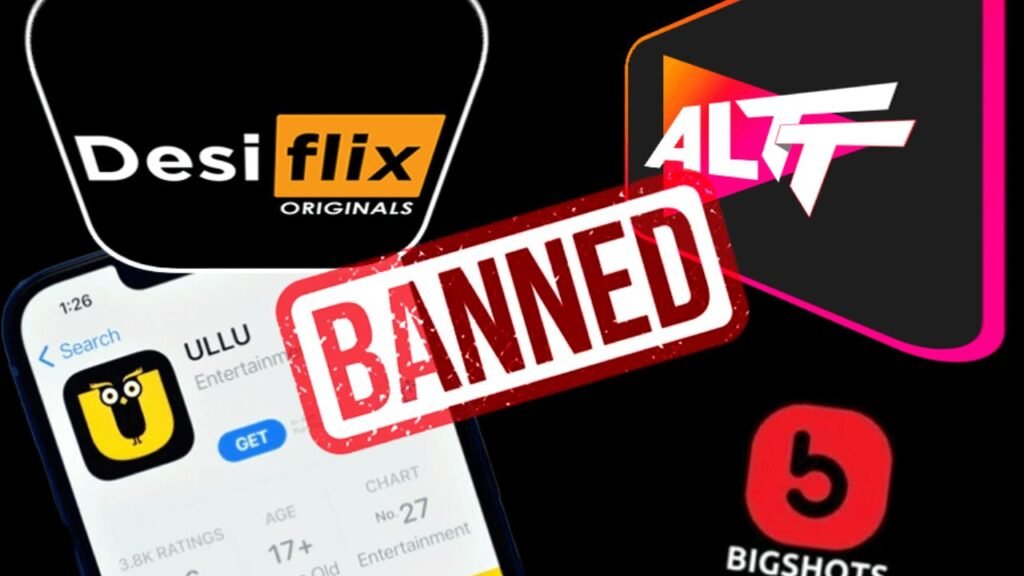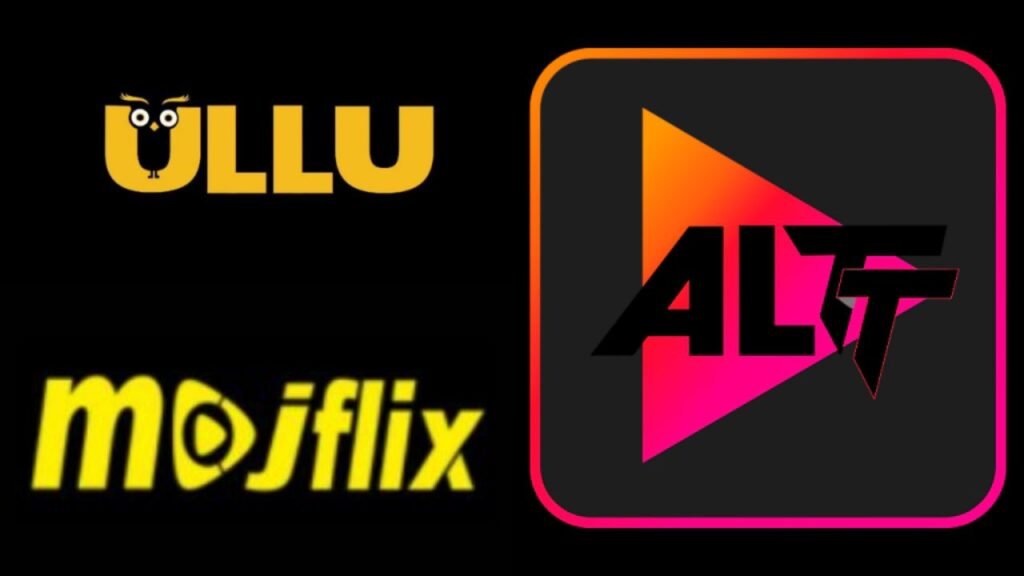In a bold move aimed at cleaning up digital content, the Indian government has blocked 24 platforms, including some well-known streaming apps like ULLU and ALTT, for allegedly promoting obscene and sexually explicit material. The Ministry of Information and Broadcasting (MIB) has issued this directive under the Information Technology Act, 2000, with immediate effect.
If you’ve ever scrolled through these apps looking for spicy thrillers or late-night dramas, chances are they’re no longer available. The government’s decision isn’t just a sudden crackdown—it’s been building for a while.
Why These Platforms Were Blocked
The MIB’s directive targets platforms that have been accused of hosting and distributing sexually explicit videos, indecent portrayals of women, and content that “violates cultural and moral sensibilities.” These apps, the ministry says, crossed the line more than once.
Citing violations of Section 67 and 67A of the Information Technology Act, Section 294 of the Bharatiya Nyaya Sanhita (2023), and the Indecent Representation of Women (Prohibition) Act, 1986, the government says the ban was necessary to protect public morality and ensure platforms operate within the legal framework.
That’s a pretty serious list of violations, and the authorities seem clear: India’s digital space is not a free-for-all.

Who’s On the List?
Some of the biggest names among the 24 banned include:
- ULLU
- ALTT
- Big Shots App
- Desiflix
- Boomex
- Navarasa Lite
- Gulab App
And here are the others the government has blacklisted:
- Kangan App
- Bull App
- Jalva App
- Wow Entertainment
- Look Entertainment
- Hitprime
- Feneo
- ShowX
- Sol Talkies
- Adda TV
- HotX VIP
- Hulchul App
- MoodX
- NeonX VIP
- Fugi
- Mojflix
- Triflicks
Each of these platforms has faced criticism for pushing boundaries with erotica-style web series, adult-only content, or uncensored visual material that many deemed “crossing the line.”
What Laws Were Violated?
The ban isn’t just about moral policing. It’s legally grounded.
- Section 67 of the IT Act prohibits the publishing of obscene content in electronic form.
- Section 67A goes a step further—targeting sexually explicit material, not just basic obscenity.
- Section 294 of the newly introduced Bharatiya Nyaya Sanhita (BNS), 2023 penalizes obscene acts in public and includes digital platforms under its reach.
- The Indecent Representation of Women Act bans any portrayal that objectifies or degrades women.
So, it’s not just about being risqué—it’s about outright legal violations.
How Will This Ban Be Enforced?
The MIB has directed all Internet Service Providers (ISPs) to block public access to these apps and websites. To tighten the net, it has also looped in the Department of Telecommunications (DoT) to ensure these bans are implemented without delay across all Indian networks.
The message is loud and clear: If you’re putting out explicit content under the disguise of “entertainment,” you’re going to be held accountable.
What’s Next for Digital Content in India?
This move signals a major shift in how India plans to govern its digital entertainment space. While OTT platforms like Netflix, Prime Video, and Hotstar have been mostly cautious and operate under self-regulation, smaller platforms like ULLU and ALTT carved out a niche with their bold, often borderline-explicit content.
And while audiences may argue for creative freedom, the government clearly believes there’s a difference between pushing boundaries and violating public decency laws.
Going forward, content creators and producers will likely be under more pressure to toe the line. That means we might see tighter internal censorship policies, revised guidelines, and even pre-release content screening becoming more common across the industry.
Jay-Ho! Truth Bomb
The banning of ALTT, ULLU, and 22 others is one of the strongest signals yet that the government isn’t going to ignore what it calls “vulgar and indecent” digital content. Whether you agree with the decision or not, one thing is clear: the OTT landscape in India is changing, and fast.
For now, these platforms are off the grid. Whether they make a return by cleaning up their act—or vanish for good—remains to be seen.
Stay tuned to Jay-Ho! for the latest updates on this developing story, and everything else making waves in Bollywood, digital, and desi pop culture.






















